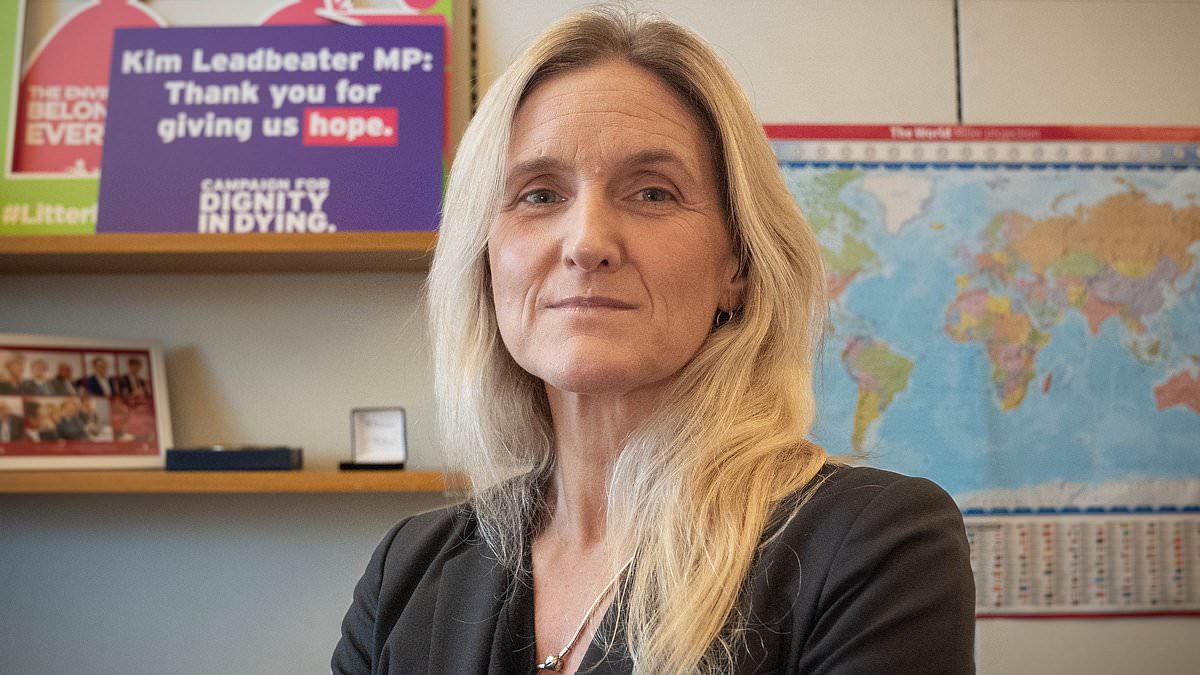Pressuring someone to end their lives will be a crime punishable by up to 14 years’ imprisonment under the proposed legalisation of assisted suicide, it last night emerged.
Details of the long-awaited Terminally Ill Adults (End of Life) Bill reveal that, if passed by Parliament, it will be illegal to use ‘dishonesty, coercion or pressure’ to make someone say they want help dying.
It will also become an offence to force someone to take the lethal dose of medication that is supplied for approved applications.
Only terminally ill people with less than six months to live will be allowed to file for help ending their lives under the Bill published by backbench Labour MP Kim Leadbeater last night – with disability and mental illness ruled out as eligible criteria.
They will have to make separate ‘clear, settled and informed wishes’ to die and have their mental capacity assessed by two independent doctors. They will also be told about alternative treatments such as hospice care.
Their application will then be ruled on by a High Court judge who must take evidence from one of the doctors and may also question the dying patient.
The wait between their medical assessment to being allowed to end their life is expected to be three weeks.
Ms Leadbeater’s Private Members’ Bill is set to be voted on by MPs on November 29. She said: ‘I remain ready and willing to answer any questions they may have, because I don’t underestimate the seriousness of the issue.
‘I believe this Bill not only offers protections to people nearing the end of their lives that they don’t have at present, but also provides for the strictest safeguards anywhere in the world.’
But campaigners have argued it is being rushed through, while growing numbers of MPs have expressed concern about the lack of scrutiny – with even Health Secretary Wes Streeting and Justice Secretary Shabana Mahmood due to vote against it.
Ross Hendry, chief executive of Christian charity CARE, said: ‘MPs need time to digest legislation of any kind, but on a proposal like this – which would have profound implications for our society – two weeks seems too narrow a timeframe.’
Dr Gordon Macdonald, chief executive of Care Not Killing, added: ‘This bill is being rushed with indecent haste and ignores the deep-seated issues in the UK’s broken and patchy palliative care system and the crisis in social care.
‘It ignores data from around the world that shows changing the law would put pressure on vulnerable people to end their lives.’
And prominent barrister Alex Ruck Keene, who has worked on a right-to-die case, said he was ‘immensely troubled’ by the way the legislation is being introduced as a Private Members’ Bill rather than by the Government.
He said MPs and peers are being ‘radically unsupported’ because of the lack of detail to explain how assisted dying would work in practice, such as complex decisions on who has the mental capacity to make the decision to end their own lives.
He also fears courts may eventually decide it discriminatory to not expand the six-month life expectancy clause to cover others in pain.
